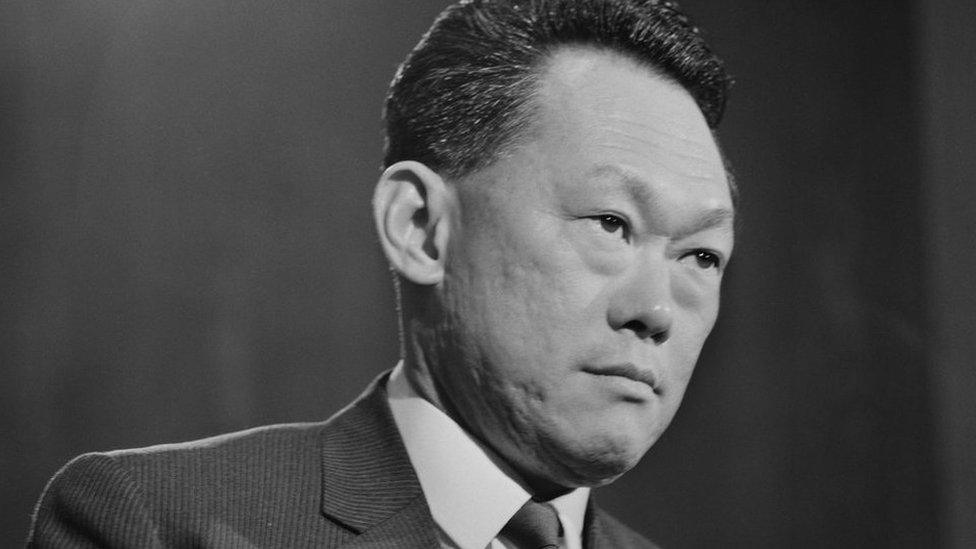Lee Kuan Yew: Singaporeans mourn 'charging lion'
- Published
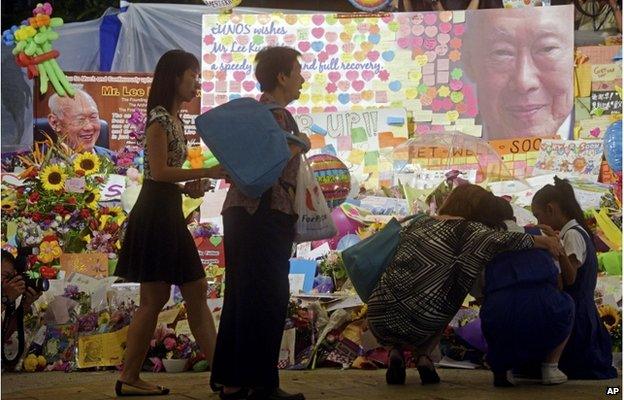
Singaporeans young and old turned up to grieve at the hospital where Mr Lee died
As the sun rose over Singapore General Hospital, paralympic athlete William Tan arrived in his wheelchair at a tribute area for Mr Lee Kuan Yew and bowed his head in silence.
He told the BBC that as a child, he had watched Mr Lee cry on television as he announced one of the country's most traumatic moments: its separation from Malaysia in 1965.
"It's a sad day for all Singaporeans. I lived in the era where he built Singapore, and I've seen it progress," said the 58-year-old.
For Sayeed Hussain, who brought his two teenage children to pay respects before they headed off to school, Mr Lee's legacy was social harmony. "He did a lot for us, helped to shape a multi-racial and multi-cultural Singapore," he said.
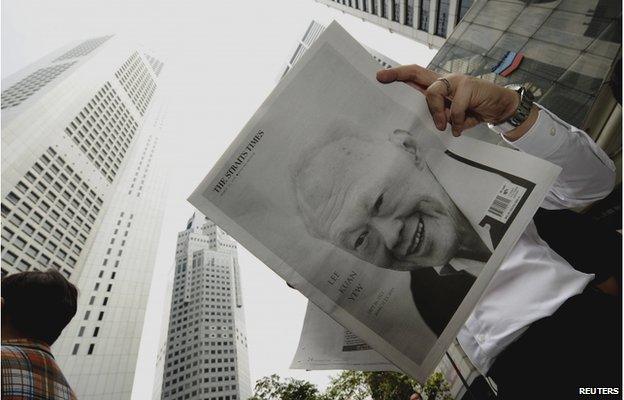
The country's newspapers darkened their mastheads and published Mr Lee's picture on their front pages
Mr Lee was a towering figure in the lives of many Singaporeans, leading a team that transformed Singapore to a rich, stable country.
He has also been strongly criticised for his human rights record, his ruthless pursuit of political opponents and views on race and genetics. But in the immediate hours after his death, few Singaporeans were willing to touch on the more controversial aspects of his legacy.
Even opponents, such as politician Chee Soon Juan who was sued for defamation by Mr Lee, expressed only condolences. Low Thia Khiang, the leader of Singapore's main opposition party in parliament, Workers' Party, said Mr Lee's contribution would be "remembered for generations to come".
'A charging lion'
Online and offline, the country mourned. Radio and television played tributes and downbeat music, newspapers darkened their mastheads, digital billboards were blanked out, and television stations ran tickers announcing his death.
On Facebook, people turned their display pictures to stylised icons mourning Mr Lee.

By mid-morning, several residents of Lee Kuan Yew's Tanjong Pagar constituency had arrived at the local community club to pay their respects.
As a boy growing up in the area, L Kalaiselvan, 57, attended many of Mr Lee's election rallies.
"When it would be his turn to speak, it was like a bull or a lion charging onto the stage. His voice was so commanding. You felt like you were in safe hands," he said.
Many also showed up at the iron gates of the Istana, the compound housing the president's official residence and the prime minister's office. Officials had set up a tented booth with boards where people could post messages.
They came, young and old, bearing bouquets, cards and solemn expressions. Some stayed behind to read what others had written, and several had tears in their eyes.
"We've never had a leader who worked so tirelessly for us. He sacrificed a large part of his life for the country," said Carolyn Chia, 40.
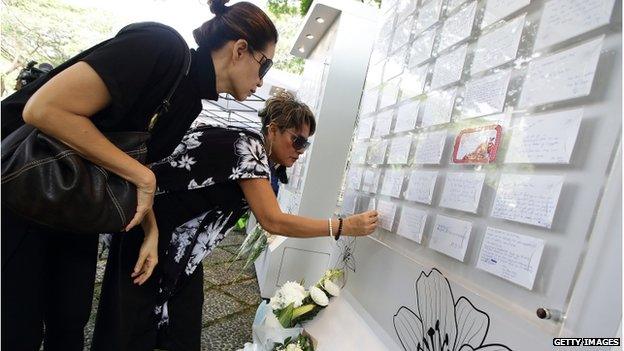
The messages were written on white cards and posted on laminated boards outside the Istana
Generational gap?
Among the older Singaporeans who spoke to the BBC, there was an anxiety that younger citizens would forget Mr Lee's legacy, and the hardships that earlier generations had faced, and grow complacent.
"He was our founding father, he gave us government housing and education, I owe everything to him. Life was hard back then... I don't know if younger ones will remember that," said Sum Choi Yoke, 65.
But 35-year-old lecturer W Chai said it was the duty of his generation "to do more to show the country that we do care... it's our job now to move things forward."
"Whichever direction the current leadership takes now, it will have to be a more open one, and it's been happening. The people now want more say in this country."
Younger Singaporeans said they respected Mr Lee, even if they would not support some of his strong-armed tactics, such as crackdowns on critics, if he was still in politics today.
"It would be difficult now, because the political field has changed," said Wong Chee Wai, 34. "But Mr Lee did what was best for Singapore at that time."
"It's not always possible to be the good guy and also do what's necessary."
- Published23 March 2015
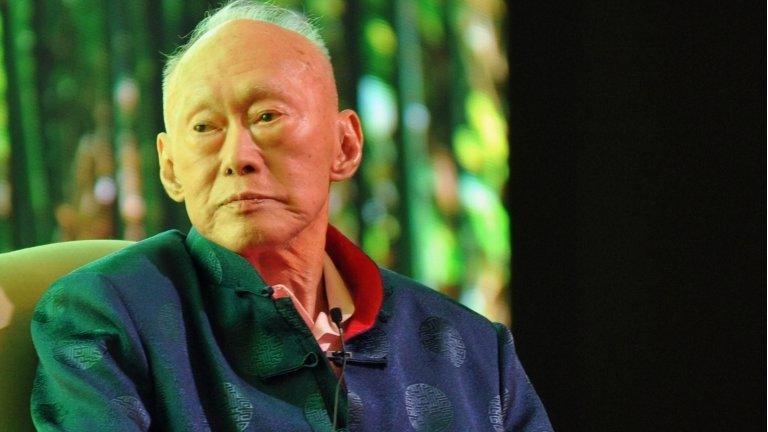
- Published22 March 2015
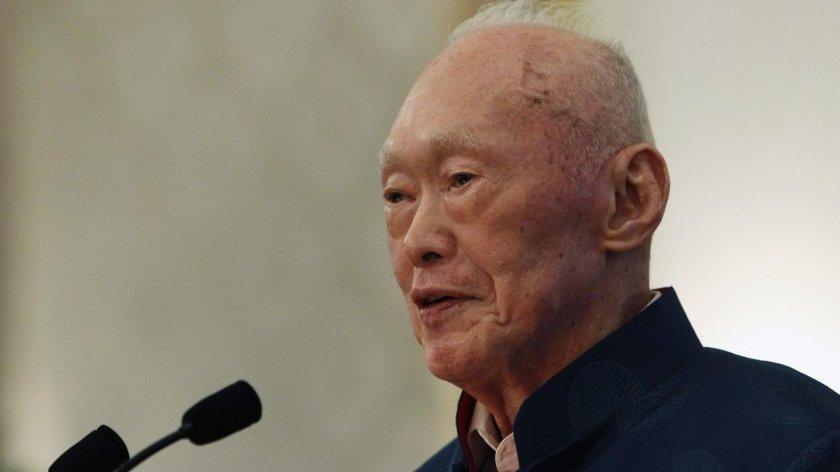
- Published22 March 2015
